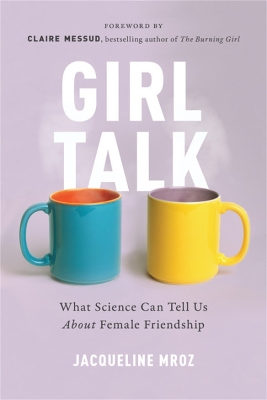Reviewed by Joséphine on
Book rating: 3.5 stars
Initial thoughts: The audiobook narration was absolutely terrible. The narrator was very stilted, making unnatural breaks as though she was was reading an extremely long list rather than prose. Before every break, the narrator added inflections as one does at the and of a sentence, which made listening doubly painful. I was quite difficult to concentrate on the content because I was distracted by the annoying flow of speech. Still, I persisted because this is a fascinating topic.
Mroz discussed why female friendships tend to be much more tenuous than male ones, while also exploring their depth, positive impacts on health (both mental and physical), and how they're a social glue that help women fulfil their roles in society as employees, mothers, grandmothers, wives, etc.
As expected, this discourse led to a lot of generalisations, although the author stopped short of making sweeping statements that assumed all women are the same. She made concessions for women who deviate from the female "norm". Sadly, she didn't explore why that is.
In some regards, I did find Girl Talk insightful, as it shed light on why I might have lost some of my closest friends over the years in deeply painful and confusing "friendship break-ups". However, a significant amount of this book hinged on the author's personal anecdotes. Given that more than a hundred women were surveyed, more weight should've been placed on that research.
Reading updates
- Started reading
- Finished reading
- 9 February, 2019: Reviewed
